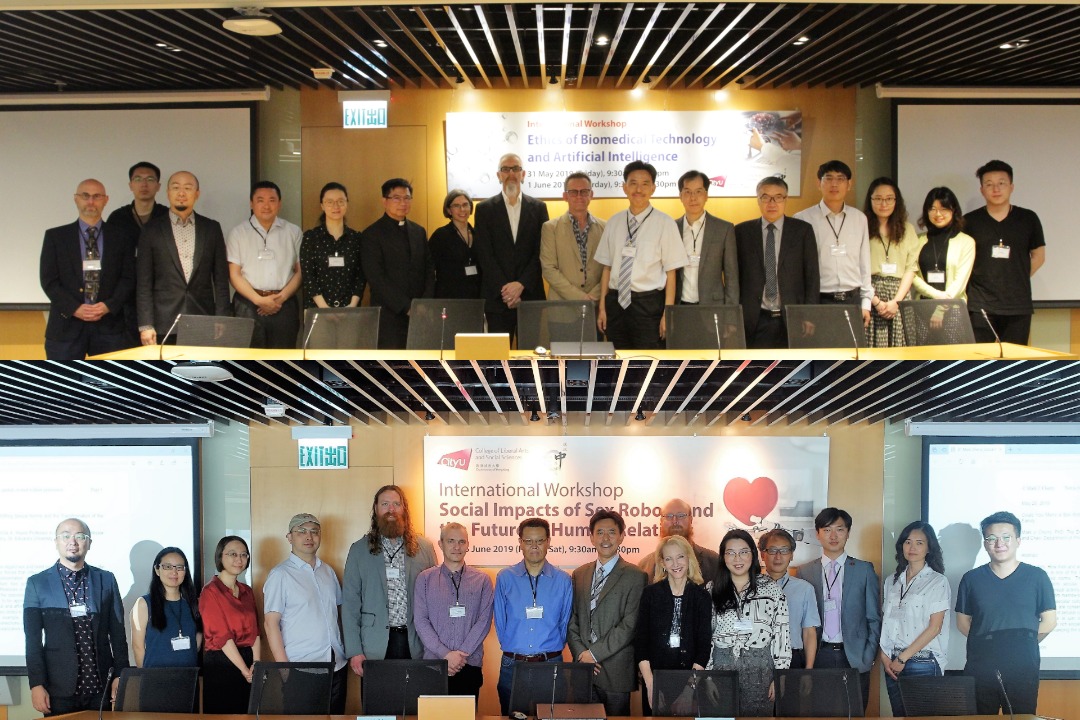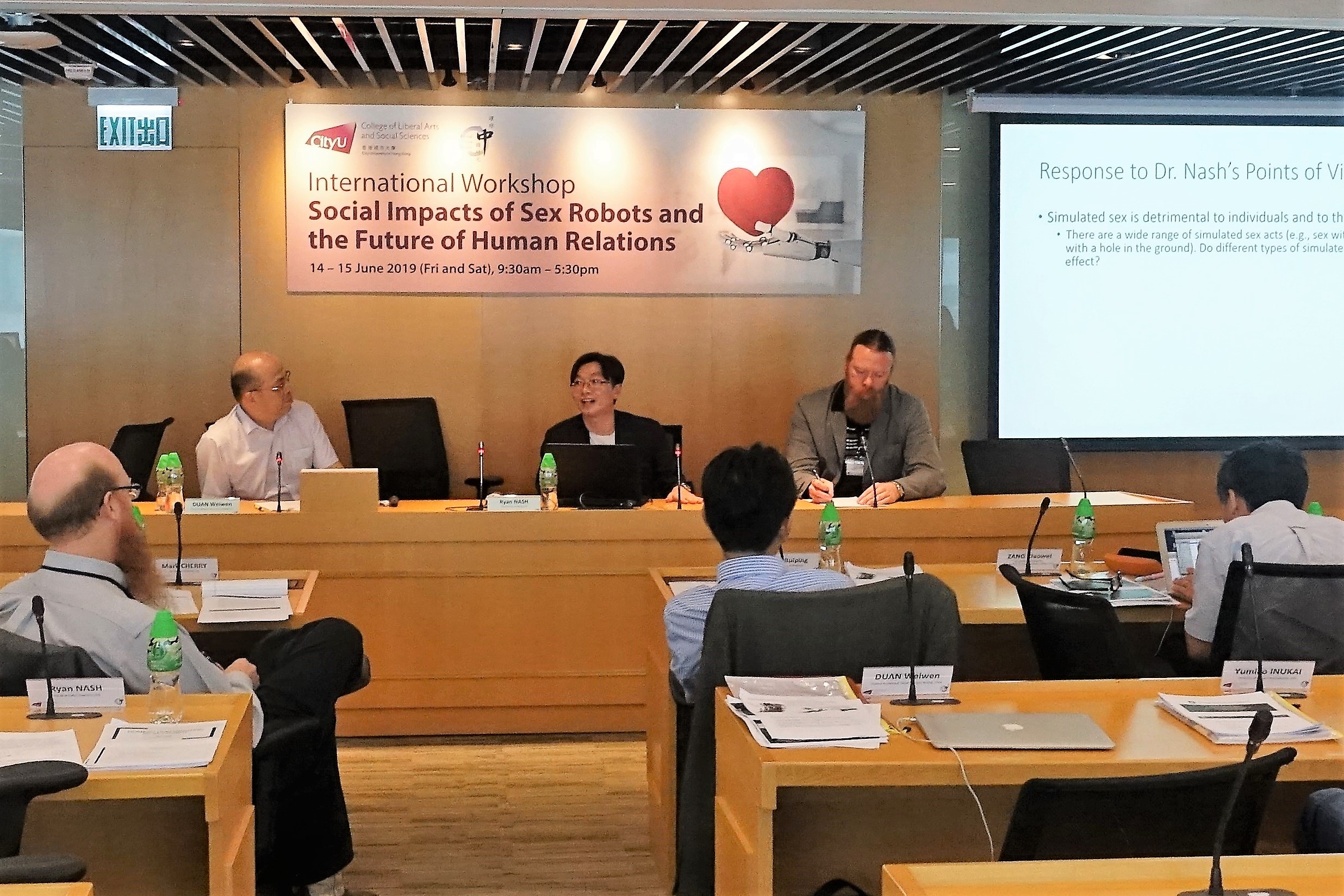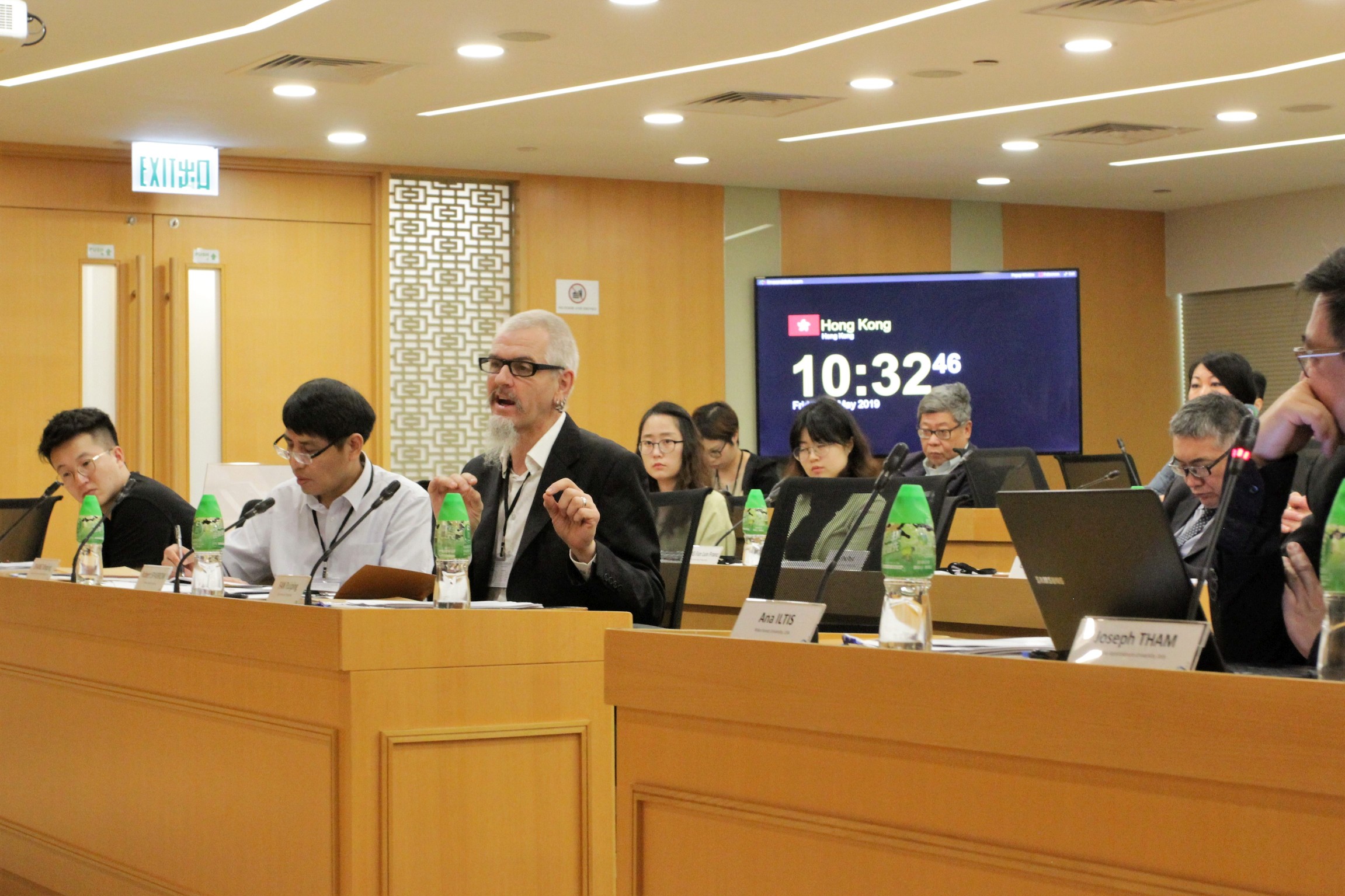Artificial intelligence (AI), robots, biotechnology… these terms all sound very “scientific” in nature. But in the academic world, it is important for us to look at any single issue from multiple perspectives.
The Global China Studies project of the College of Liberal Arts and Social Sciences welcomed a list of experts from local and international institutions to two workshops, titled “Ethics of Biomedical Technology and Artificial Intelligence” and “Social Impacts of Sex Robots and the Future of Human Relations” respectively, in May and June. In each workshop, nine to ten participants presented their research works and points of view, which were then commented by designated commentators and opened for profound controversies and discussions among other participants.
The first workshop went through a wide range of ethical issues arising from the rapid development of AI, and its applications in medical diagnosis and treatment, including the morality of genetic modification, human relationships (parent-children and clinician-patient), patients’ rights, privacy, data protection, the need to disclose information within an AI system or a set of AI algorithm, the influence of biotechnology to people’s religious faith and beliefs, fairness in accessing public health services, information system security, and the way towards establishing guidelines in a global setting for future research and clinical application.
The second workshop looked into the enormous social impacts of the advancement of anthropomorphic (treat objects as if they are human in appearance, character or behaviour) sex robots. As one can imagine, the arguments lay mainly on the relationships between men and women, and within the family. Some participants discussed the use of sex robots as companion and for sexual satisfaction and emotional health, especially for older adults in this aging world. Meanwhile, the benefits and risk factors of the application of sex robots in the rehabilitation of physical, mental or psychological sexual health problems were also examined. By engaging in intense discussions, the experts shed light on how contemporary societies should formulate appropriate policy and make suitable regulations on the development and application of sex robots.
In both workshops, the participants also explored the possibility of interdisciplinary and international cooperation in relevant research, making them even more rewarding.
 Photo 1: The two workshops gathered participants from institutions in Hong Kong, Mainland China, Japan, Australia, Italy, the US and the UK for idea sharing.
Photo 1: The two workshops gathered participants from institutions in Hong Kong, Mainland China, Japan, Australia, Italy, the US and the UK for idea sharing.
 Photo 2: After each session of presentation, a designated commentator would give a rigorous response to provoke further discussion.
Photo 2: After each session of presentation, a designated commentator would give a rigorous response to provoke further discussion.
 Photo 3: The interactions between the presenter and other participants were usually longer than what the 30-minute questions and answers sessions allowed.
Photo 3: The interactions between the presenter and other participants were usually longer than what the 30-minute questions and answers sessions allowed.
